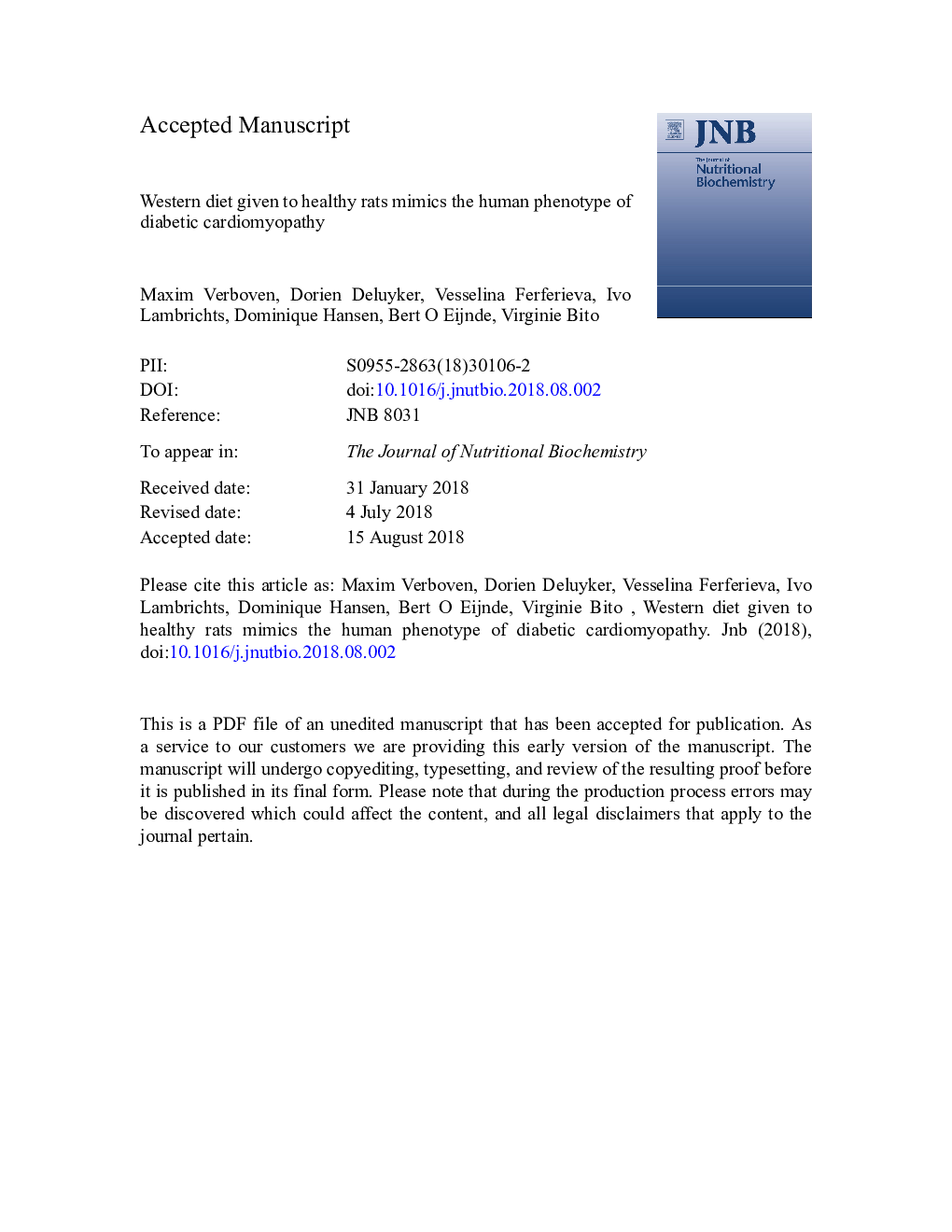| Article ID | Journal | Published Year | Pages | File Type |
|---|---|---|---|---|
| 11007594 | The Journal of Nutritional Biochemistry | 2018 | 22 Pages |
Abstract
Diabetes mellitus (DM) is a major problem worldwide. Within this patient group, cardiovascular diseases are the biggest cause of morbidity and mortality. Diabetic cardiomyopathy (DCM) is defined as diabetes-associated structural and functional changes in the myocardium, not directly attributable to other confounding factors such as coronary artery disease or hypertension. Pathophysiology of DCM remains unclear due to a lack of adequate animal models reflecting the current pandemic of diabetes, associated with a high increased sugar intake and the 'Western' lifestyle. The aim of this study was to develop an animal model mimicking this 'Western' lifestyle causing a human-like phenotype of DCM. Twenty-four Sprague-Dawley rats were randomly assigned into a normal or a 'Western' diet group for 18 weeks. Glucose and insulin levels were measured with an OGTT. Heart function was assessed by echocardiography and hemodynamic measurements in vivo. Cardiac fibrosis and inflammation were investigated in vitro. 'Western' diet given to healthy rats for 18 weeks induced hyperglycemia together with increased AGEs levels, insulin levels and hypertriglyceridemia. Heart function was altered with increased end-diastolic pressure, left ventricle hypertrophy. Changes in vivo were associated with increased collagen deposition and increased PAI-1 levels in the heart. High-sugar diet or 'Western' diet causes T2DM and the hallmarks of DCM in rats, reflecting the phenotype of the disease seen in patients. Using this new model of T2DM with DCM might open new insight in understanding the pathophysiology of DCM and on a long term, test targeted therapies for T2DM with DCM patients.
Keywords
PPARPAI-1EDPTBS-TSTZECLT2DMAWTHFDLVPLVEDdLVEDVDCMPVDFLVESVLVESDDiastolic dysfunctionstreptozotocinLOXCardiac outputLeft ventricularenhanced chemiluminescenceDiabetesDiabetes mellitusType 2 diabetes mellitushigh-fat dietWestern dietsphericity indexHeart rateleft ventricular end-diastolic diameterleft ventricular end-systolic diameterLysyl oxidasePlasminogen activator inhibitor-1heart failureHyperinsulinemiaHyperglycemiabody weightEnd diastolic pressurePolyvinylidene fluoridediabetic cardiomyopathyejection fractionperoxisome proliferator-activated receptor
Related Topics
Life Sciences
Biochemistry, Genetics and Molecular Biology
Biochemistry
Authors
Maxim Verboven, Dorien Deluyker, Vesselina Ferferieva, Ivo Lambrichts, Dominique Hansen, Bert O Eijnde, Virginie Bito,
